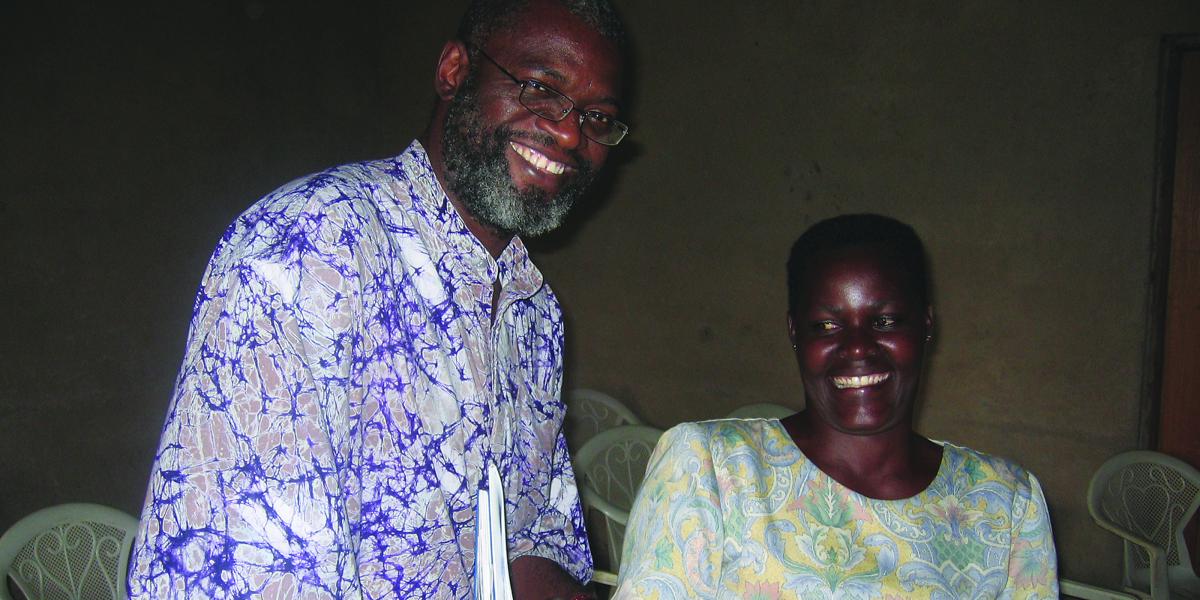Stronger Systems, Better Health
Nosa Orobaton, MD, MBA, MPH '90, DrPH '95, is chief of party with the USAID-funded Uphold Uganda, a social services initiative and project of the public health consulting firm, John Snow Inc.In July, he moves to Geneva to become chief of operations for The Global Fund to Fight AIDS, Tuberculosis and Malaria.
How is Uphold Uganda addressing the country's major health problems?
Uphold works in 33 of 73 districts in Uganda and covers about 11.4 million people out of the 26 million people in the country.
A key area is malaria, which is associated with anemia, and is a particular concern in primary school children. In one district we cover, two-thirds of the children had mild to moderate and severe anemia. When we treat malaria within 24 hours of the onset of fever, that gets it under control and reduces the devastation it creates that leads to anemia. From 2004 to 2005, using annual household surveys, the number of children who sleep under treated nets increased from 12 percent to 17 percent or 371,000 children.
Regarding nutrition, 82 percent of the children aged between 6 and 59 months in the areas where we work received vitamin A supplementation last year; that's over 1.5 million children in 2005—a huge contribution.
The percent of children who received their third dose of DTP vaccine went up from 51 percent in 2004 to 72 percent in 2005.
What is your organization doing about the AIDS epidemic?
One of the things we're looking at very closely is gender-based violence prevention. In areas where NGOs are implementing these prevention programs, we're observing an increase in the numbers of pregnant women who come for HIV testing. One of the challenges women have to confront if they're HIV positive is the disclosure process. One study in Uganda linked gender-based violence to comparatively high HIV/AIDS prevalence.
What are other pressing public health problems facing Africa—and do you see any solutions?
A big area is diarrheal diseases, which are still around. And of course, there's the interaction between sanitation, access to clean water and nutrition. Poverty exacerbates these health problems. We need to strengthen the health systems of decentralization that make it possible to deploy resources as close as possible to where the problems are. We also need to improve institutional capacity, whether public or private, to account for results and to account for monies that flow into the system.
